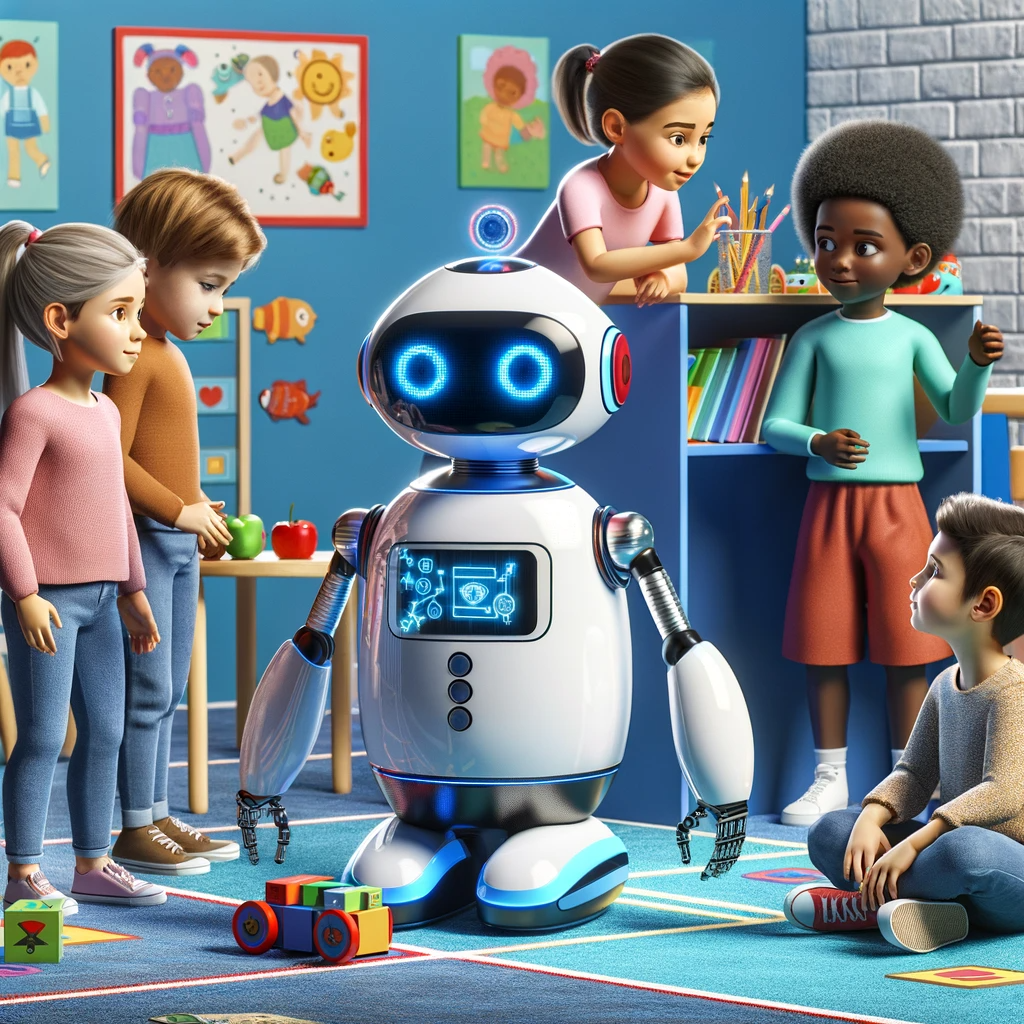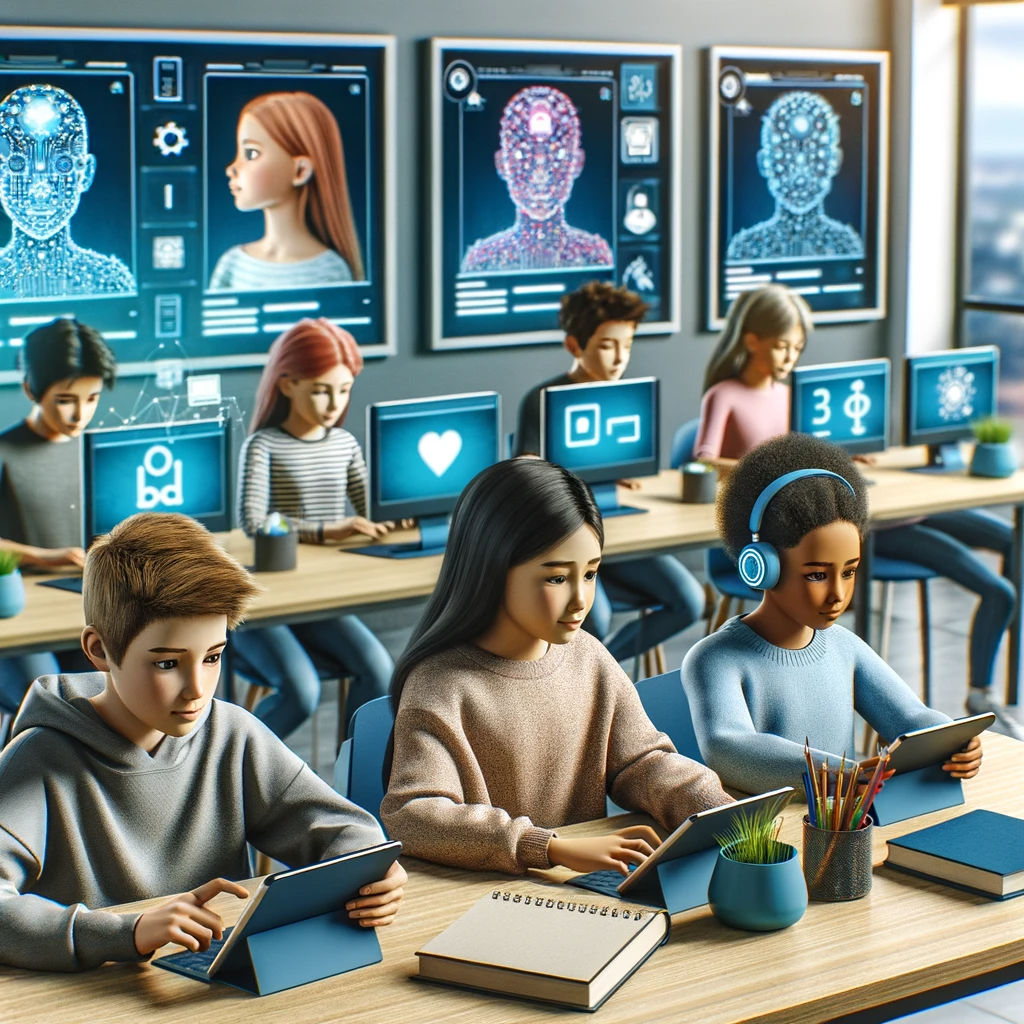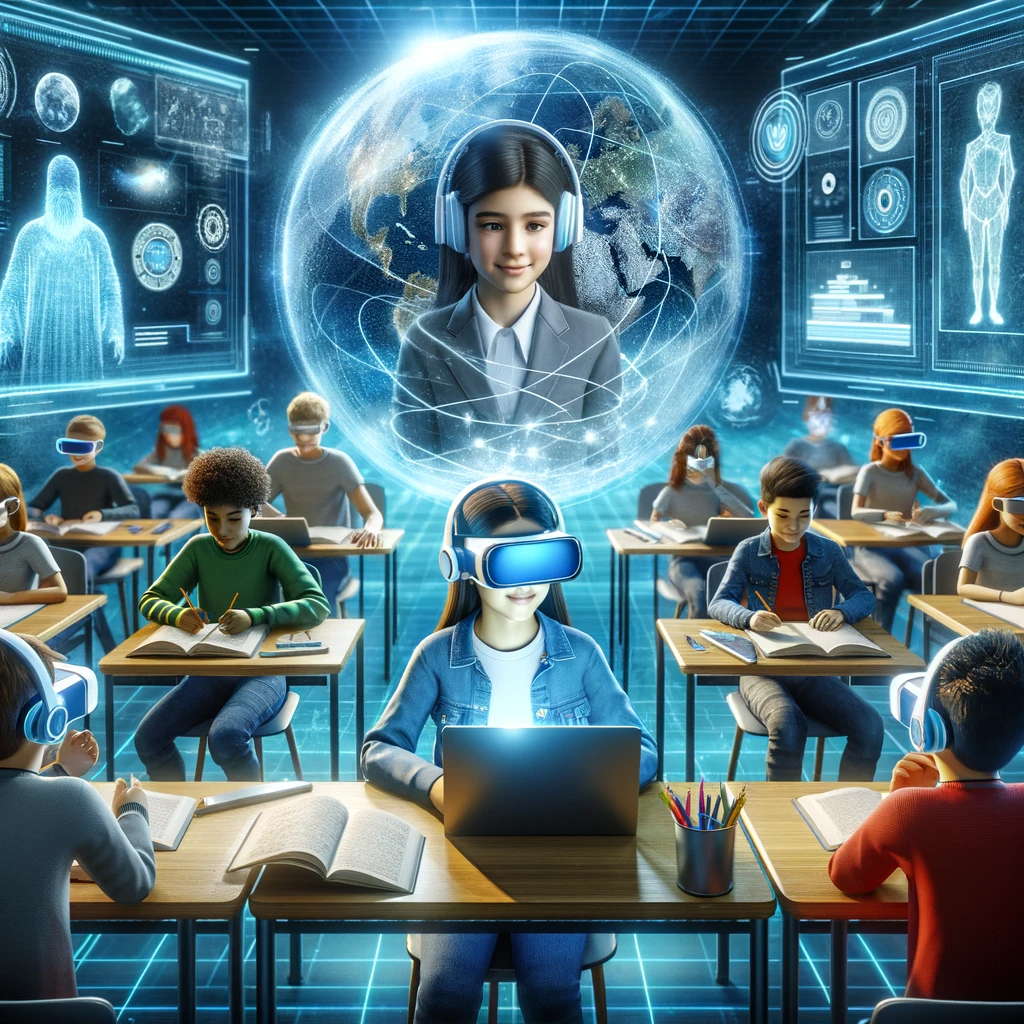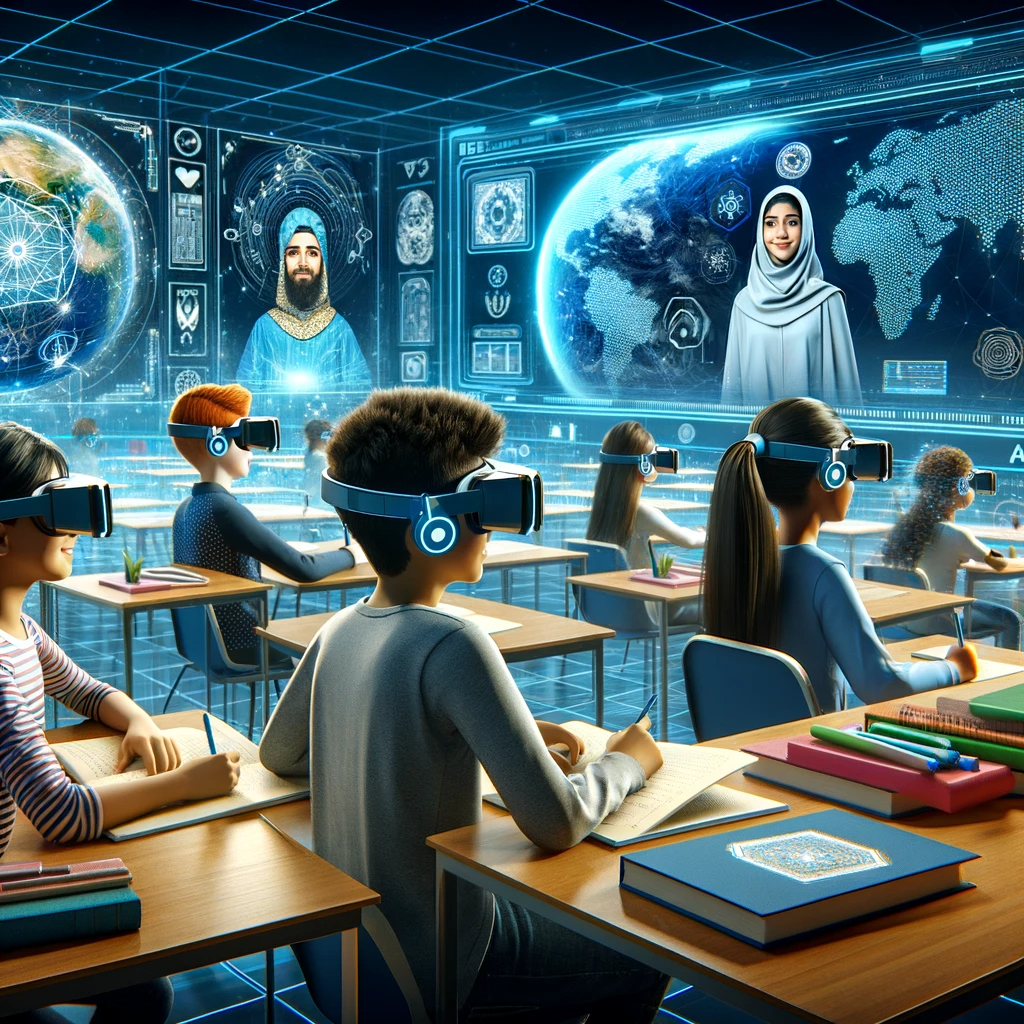The integration of Artificial Intelligence (AI) in education is rapidly transforming the traditional learning landscape. This technological advancement is not just a fleeting trend but a fundamental shift in how educational content is delivered and consumed. AI in education, a burgeoning field, offers innovative solutions to age-old teaching challenges, making learning more accessible, engaging, and tailored to individual needs.
Central to this transformation is the concept of personalized learning – an approach that adapts the pace of teaching, the level of difficulty, and the learning style based on each student’s unique needs and abilities. Personalized learning is crucial in modern education systems as it acknowledges and addresses the diverse learning styles and capacities of students. AI plays a pivotal role in this, utilizing adaptive learning platforms and intelligent tutoring systems to create customized learning experiences that are dynamic, interactive, and student-centered.
In this article, we will explore the impact of AI on personalized learning. By examining the emergence of AI in educational settings, the development and application of personalized learning strategies enhanced by AI, and the role of adaptive learning platforms and intelligent tutoring systems, we aim to provide a comprehensive overview of this revolutionary educational trend. The article will also discuss the keywords “AI in education,” “personalized learning,” “adaptive learning platforms,” and “intelligent tutoring systems,” delving into how these elements combine to shape the future of education.

The Emergence of AI in Education:
Artificial Intelligence has marked its presence in the education sector, evolving from a futuristic concept to a practical tool that enhances teaching and learning. This section will explore the historical context of AI in education, tracing its development from early educational software to sophisticated AI applications. The journey of AI in education has been marked by significant milestones, from the introduction of computer-assisted learning to the adoption of more complex AI tools capable of providing customized learning experiences.
We will delve into how AI technology is being seamlessly integrated into educational settings, transforming them into more efficient and effective learning environments. The use of keywords like “AI in education,” “educational technology,” and “AI advancements in learning” will help highlight the progressive nature of AI in transforming educational methodologies and the growing reliance on technology to address diverse learning needs.
Personalized Learning and AI:
Personalized learning, tailored to the unique needs of each student, is at the heart of modern educational strategies, and AI is the key driver of this customization. This section will define and describe personalized learning within the AI context, emphasizing how AI algorithms and data analytics are used to create individualized learning pathways. We will explore how AI-driven personalization enhances the learning process by adapting to various factors such as learning pace, style, and performance levels.
The benefits of AI-enhanced personalized learning are manifold, including improved engagement, higher retention rates, and more effective learning outcomes. By incorporating keywords such as “personalized learning,” “AI-driven personalization,” and “individualized learning experiences,” this section will underscore the synergy between AI and personalized learning approaches, illustrating how technology is making education more relevant and impactful for every student.
Adaptive Learning Platforms Powered by AI:
Adaptive learning platforms stand as a testament to the power of AI in personalizing education. These platforms represent a significant leap in educational technology, utilizing AI to dynamically adjust learning content and assessments based on real-time learner performance and feedback. This section will introduce these platforms and discuss their critical role in facilitating personalized education.
We will examine how AI algorithms within these platforms analyze student data to provide customized learning paths, ensuring that each student’s learning journey is optimized for their specific needs and abilities. The section will also provide examples of popular adaptive learning platforms, showcasing their features and the benefits they offer in enhancing the learning experience. Keywords like “adaptive learning platforms,” “AI in adaptive education,” and “customized learning paths” will be highlighted to emphasize the transformative role of AI in making education more adaptive and student-centric.

Intelligent Tutoring Systems and Their Impact:
Intelligent Tutoring Systems (ITS) represent a significant breakthrough in AI-powered education. These systems are sophisticated software programs that provide personalized instruction and feedback to learners, akin to a human tutor. ITS uses AI algorithms to assess a student’s current understanding, identify learning gaps, and tailor the teaching approach to suit individual needs. This personalized approach enables ITS to simulate one-on-one instruction, offering a highly adaptive learning experience that is responsive to each student’s unique learning pace and style.
The impact of intelligent tutoring systems on student outcomes has been noteworthy. Studies have shown that ITS can enhance learning efficiency, improve knowledge retention, and boost academic performance. By providing immediate feedback and personalized support, ITS helps students grasp complex concepts more quickly and thoroughly. These systems have been particularly beneficial in subjects like mathematics, science, and language learning, where concepts can be abstract and challenging to master.
Challenges and Future Prospects in AI-Driven Education:
While AI-driven education, including intelligent tutoring systems and adaptive learning platforms, offers numerous benefits, it also faces significant challenges and limitations. One major challenge is ensuring equitable access to these technologies, as not all educational institutions or students may have the resources to implement and utilize these advanced systems. Additionally, there are concerns about the effectiveness of AI in comprehensively understanding and addressing the nuanced needs of all learners, particularly in cases where emotional and social learning are involved.
Ethical considerations and data privacy are also critical issues in AI-driven education. As these systems rely on collecting and analyzing vast amounts of student data, ensuring the security and privacy of this information is paramount. There’s also the ethical concern of AI potentially reinforcing existing biases, which needs careful consideration and mitigation.
Looking to the future, advancements in AI are expected to continue revolutionizing personalized learning. Emerging trends might include more sophisticated natural language processing capabilities, enabling AI systems to understand and respond to students more naturally and intuitively. Another potential area of development is the integration of AI with virtual and augmented reality, creating immersive and interactive learning environments.

Conclusion:
This article has explored the dynamic role of AI in personalizing and enhancing learning experiences. From adaptive learning platforms to intelligent tutoring systems, AI has shown immense potential in transforming educational practices. However, alongside these advancements come challenges and ethical considerations that must be addressed to ensure these technologies are used responsibly and equitably.
As we look to the future, the role of AI in education is poised to grow, offering more adaptive, efficient, and personalized learning experiences. The continuous evolution of AI in education promises not only to reshape how we learn but also to expand the horizons of what can be achieved in the realm of education. The journey of integrating AI into learning is an ongoing one, marked by both opportunities and responsibilities.
